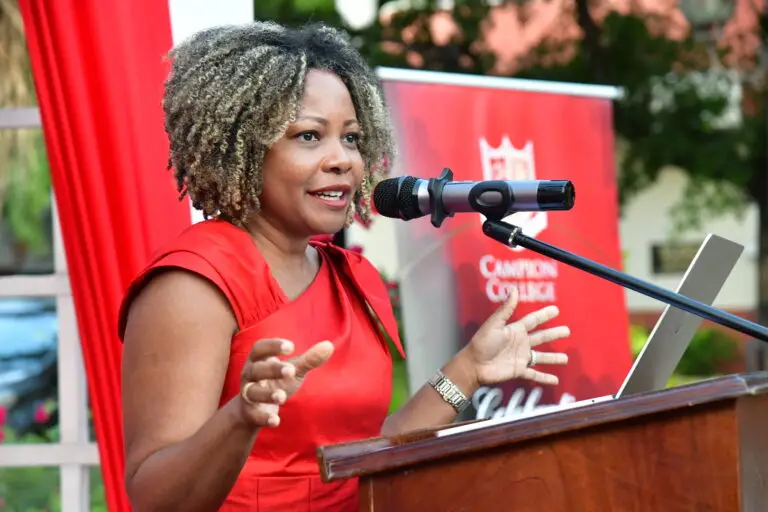KINGSTON, Jamaica – Tackling food insecurity is essential to achieving equity in education, emphasized Minister of Education and Youth, Senator Dana Morris Dixon, at the Archbishop Samuel Carter Lecture held at Campion College on January 9.
Speaking on the theme, ‘Pursuit of Excellence and Equity in Jamaica’s Secondary Education System,’ Morris Dixon highlighted the undeniable link between nutrition and learning outcomes, calling food insecurity a significant barrier to educational equity.
“Hungry children cannot learn effectively. Nutrition impacts brain development, concentration, and even behavior,” she stated. “Without proper nutrition, we cannot expect optimal academic performance or personal development.”
Supporting Vulnerable Students
Morris Dixon pointed to the Government’s school-feeding initiatives, which benefit over 30 percent of students annually, with approximately $8 billion allocated to the programme. While applauding these efforts, the minister stressed the need to expand support for children living outside the Programme of Advancement Through Health and Education (PATH).
“I worry about those not enrolled in PATH but still facing food insecurity. The current review of PATH’s criteria is timely and necessary to ensure more vulnerable families can access this crucial lifeline,” she noted.
The minister further advocated for holistic interventions to combat poverty-driven school dropouts. “When families receive support with meals, fees, and supplies, the likelihood of children leaving school prematurely decreases significantly,” she said.
Bridging the Gap: Excellence and Equity
During her address, Morris Dixon reflected on the twin pillars of excellence and equity in the education system. “Excellence ensures we cultivate intellect and prepare students for a competitive world, while equity guarantees no child is left behind due to circumstances beyond their control. These are not competing ideals; they work hand in hand to create a just education system,” she explained.
Despite significant progress in access to education, the minister acknowledged a pressing learning crisis, with many students leaving primary school without basic literacy or numeracy skills. “Access alone is insufficient. Equity is about providing every child with opportunities that address their specific needs, not about identical outcomes,” she remarked.
A Call to Action
Morris Dixon outlined actionable strategies to improve education equity, including targeted bursaries, transportation stipends, and accommodations for students with special needs. “We must eliminate financial and structural barriers that force families to keep their children out of school or lead to truancy,” she urged.
The minister’s address underscored the importance of a collective national effort to address these challenges. By prioritizing food security, educational support, and targeted interventions, Jamaica can ensure that every child has the opportunity to thrive academically and personally, fostering a brighter future for the nation.

